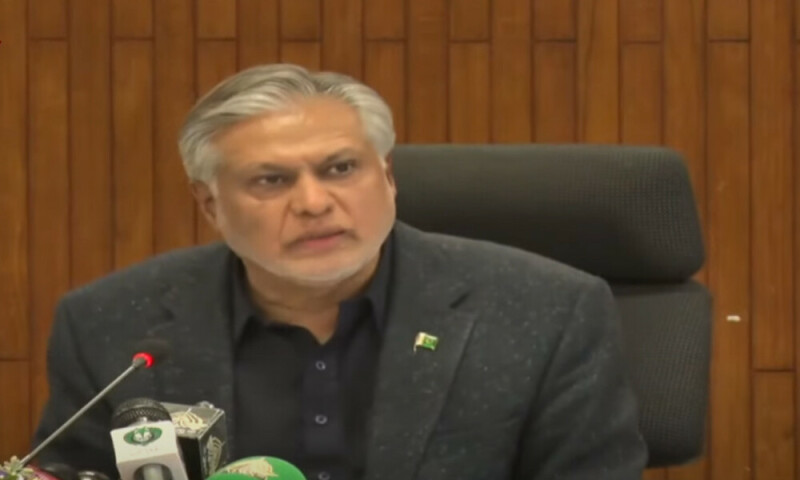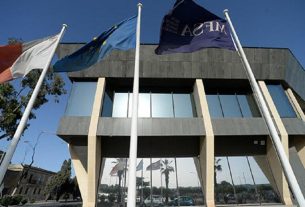Finance Minister Ishaq Dar began his press conference on Friday by sharing economic figures under the previous Pakistan Tehreek-e-Insaf (PTI) government, blaming Imran Khan for the country’s current economic state.
Dar also said Pakistan will not default on its payments to international creditors, a statement that comes amid heightened concerns over the country’s ability to meet obligations due to low foreign exchange reserves.
Referring to PTI and its party chief Imran, Dar said passing “loose” remarks on the economy impacts capital and financial markets.
He also underlined that “mismanagement and bad governance has brought Pakistan to this point”.
“Flood caused massive losses. Inflation during July 2022 -February 2023 was 26% and in this, the core inflation stood at 19%. The rest is imported inflation. We cannot avoid it due to floods.”
Dar continued to compare economic performance during the PTI government’s tenure, arguing that the opposition has not really improved Pakistan’s standing.
“But Pakistan will escape the economic quagmire. We are making repayments to bilateral and multilateral lenders. We have made payments beyond our capacity.”
The Ministry of Finance had earlier confirmed that the senator would hold a conference in Islamabad. Dar had also conveyed this while speaking to reporters earlier during the day.
When asked by a reporter if he was holding the presser to announce his resignation, Dar inquired if they had problems with his work. He urged them to “wait for 2 hours for my press conference at 4:10 pm”.
“I invite you all to attend it,” he said.
When told by a reporter that former Federal Board of Revenue chairman Shabbar Zaidi wanted Dar to resign, he asked “what has he (Zaidi) done for the country?”
“He made matters worse for Pakistan and he should be in jail for taking Pakistan to the brink of default,” he underlined.
When asked about his views on former finance minister Shaukat Tarin, he refused to answer.
Dar’s press conference comes at a time when the currency has seen wild swings in the inter-bank market, hitting an all-time low of Rs285.09 on Thursday after a fall of 6.7%. However, the very next day, the rupee recovered some of its losses, and was trading around the 280 level.
The volatile exchange rate comes in tandem with a low level of foreign exchange reserves and acute economic distress in the country, which also prompted the State Bank of Pakistan (SBP) to hike the key policy rate by 300 basis points to 20% on Thursday.
On Thursday, Dar had looked to kill speculation on Pakistan’s economy, writing: “Anti-Pakistan elements are spreading malicious rumours that Pakistan may default.”
“This is not only completely false but also belie the facts. SBP forex reserves have been increasing and are almost $1 billion higher than four weeks ago despite making all external due payments on time.”
He stated that foreign commercial banks have started extending facilities to Pakistan.
“Our negotiations with the International Monetary Fund (IMF) are about to conclude and we expect to sign Staff Level Agreement with IMF by next week. All economic indicators are slowly moving in the right direction.”
Pakistan has been unable to secure the next tranche of funding from IMF funding which is critical for the cash strapped nation.


